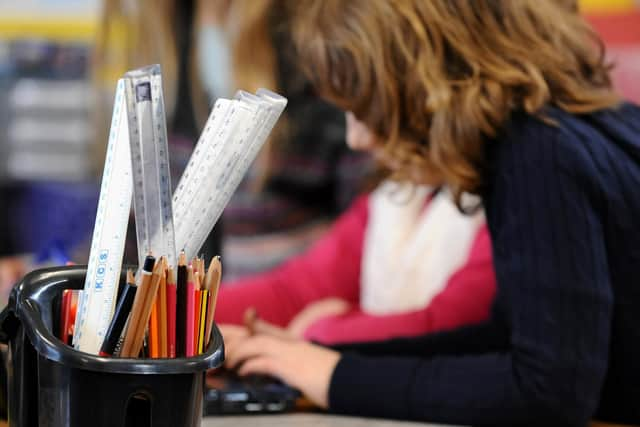What is Chat GPT and should we be worried about its impact on the education of schoolchildren? - David Alcock
Since its launch at the end of last year, educationalists have been wondering about how their practice might be impacted by this free, online, Artificial Intelligence application.
For those who aren’t aware of it, it allows you to type in a question and within seconds it produces a tailor-made answer.
Advertisement
Hide AdAdvertisement
Hide AdSeveral teachers have reflected on how it might help teachers work. But how will it affect the tasks that we set our students, and what might the longer-term implications of this technology be?


The initial frenzy of speculation about ChatGPT has now subsided as teachers and school leaders have embarked on a more sober analysis of its implications.
Yes, there has been an acceptance that we will have to move away from setting students recap and past exam paper questions to complete at home. But this should have been the direction of travel for years, thanks to the increased sophistication of online search engines and the common practice of students sharing responses with each other, not only in person, but also via social media.
And yes, the current model of coursework, let alone qualifications which are largely or wholly based on written reports, such as Extended Project Qualifications, will have to be significantly rethought. Examination boards will need to grapple with increased urgency whether they can reform their qualifications, perhaps moving towards intensive ‘in-house’ write-ups of geography and history investigations.
Advertisement
Hide AdAdvertisement
Hide AdBut there are several other workarounds, and indeed opportunities, that teachers and schools can employ in the light of ChatGPT. Some involve meeting its challenges and circumventing the risks of plagiarism. These include adopting ‘flipped learning’ more wholeheartedly. Its benefits are already well known, but this might be the time to embrace it.
Flipped learning involves asking the students to research, consolidate, and tackle simpler tasks at home, freeing up class time for higher value-added and/or interpersonal tasks such as evaluation, discussion, and decision-making.
Teachers could also set more tasks which are bound by local and up-to-date limits. This is because ChatGPT is, at the moment, fed by data which was online in 2021. For example, these four tasks stump it: ‘Write up today’s experiment’, ‘What three things did you learn from today’s lesson?’, ‘What were the geopolitical challenges of 2022?’ and ‘To what extent is Ilkley economically inclusive?’.
Changing the format of work carried out at school might also help. Educators could hold more discussions, and try alternative formats for work, such as sketching, photos, paired work and videos.
Advertisement
Hide AdAdvertisement
Hide AdIf something looks amiss, students’ answers can now be run through AI detection software: the pre-eminent one is Edward Xian’s ‘GPT Zero’, which gives a ‘perplexity score’ – the higher the score, the more likely it is that text has been written by a human.
Additionally, as commentators such as Daisy Christodoulou and Evan Dunne have pointed out, teachers can also use ChatGPT to help us with a variety of tasks, and to enhance their teaching. It can be used to help assess students’ work, set quizzes, write lesson plans, assemblies and so on.
I have already encouraged students to critique answers which ChatGPT has given me and to discuss how they might be improved: sometimes they need significant improvements and at other times they just need a bit more ‘flair’.
Let’s take a step back for a moment, though, and look at how the wider educational landscape may be shaped by this app, and by its later iterations – not to mention the products of competitors like Google’s DeepMind.
Advertisement
Hide AdAdvertisement
Hide AdLike it or not, AI will probably end up taking some of the control away from how teachers help students encounter knowledge about the world.
In response, educators should take the opportunity to develop – and shout about – the human side of what they do. All hail the army of well-respected teacher-facilitators, ushering in the next generation of critical thinkers.
AI should also open curriculum breathing space, freeing up time from unrelenting knowledge transmission. Teachers’ energy could then be directed into developing rounded young people, who would be given more time to pursue the arts, sports and outdoor learning, and to develop ‘eco-capabilities’ to reconnect with nature.
Educators should be bold as they contemplate how to harness ChatGPT’s powers, not only to make teaching more efficient and relevant for our students, but also how we might all work towards a more humane, caring, and sustainable future for everyone.
David Alcock, Geography Teacher and Teaching and Learning Champion at Bradford Grammar School; founder of Hopeful Education.